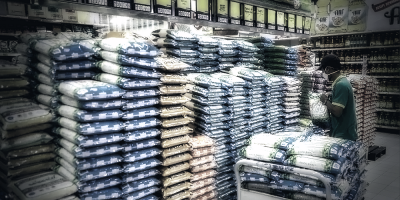Let’s waste less food and eat more prudently not only to fight inflation but also stay robust.
Finance minister Tengku Zafrul pointed out on Sunday that the country subsidized a record RM80 billion this year to help the rakyat weather the spiraling inflation.
These subsidies come in the forms of cash aids and subsidies for fuel, LNG as well as food items which are all essentials in our day-to-day lives.
Because of that, the government earlier announced to abolish the ceiling price mechanism for chicken, eggs and cooking oil but later found it not feasible as these are among the most important sources of food for the people. The consequences could be grave if the prices of these items were allowed to float freely in response to market forces.
The issues of food shortage and inflation are not going away anytime soon. Past experiences show that once the prices are allowed to go up, they will never ever come down again. As such, we have to learn to save and spend wisely.
Malaysians are big fans of deep fried foods. On average, we consume 50 kg of sugar each year, or six times the global average. This helps explain why some 20% of Malaysian adults are suffering from diabetes.
Malaysia has a relatively high population ratio having sub-health issues, including the B40 community, mainly because of the excessive intake of deep fried foods, rice and sugar.
British prime minister Boris Johnson recently proposed to the Britons to eat less to fight food shortage and inflation. His latest national food strategy encouraging the people to avoid high-sugar and high-fat diet is actually quite commendable.

The Guardian has earlier reported that 40% of people in the United Kingdom were forced to buy less food to save money, but does that therefore mean that the Britons are starving themselves?
Not necessarily because we always buy more than enough food that often ends up in the trash can.
If we buy only what is necessary, we will have less expired food in the fridge!
In neighboring Singapore where almost all the food items have to be imported, the inflation rate is expected to ride as high as 8.2% in the second half of this year.
Prime minister Lee Hsien Loong has thus urged Singaporeans to make adjustments to their dietary habits, cutting down on meat and eating more greens.
FAO statistics show that some 33% of the world’s population are wasting food or suffering food production loss owing to human factors.
Food loss and food waste entail enormous financial, moral as well as environmental issues because food production requires large amounts of water, soil, fertilizers, as well as manpower in storage and transportation, not to mention 30% of the world’s greenhouse gas emissions from food-related industries.
As a result of poor production and discarded food, the world is suffering up to US$2.6 trillion loss each year, equivalent to four times the amount of food needed to feed the world’s 800 million starving population.
Several international scholars pointed out in the July 15, 2021 issue of Nature that 27-30% of food produced in China went to waste every year.
In 2016 alone, the country wasted 17-18 million tons of food, enough to feed 30-50 million people!
If we include also food loss, China lost more than 35 million tons of food, equivalent to 6% of its total food production, according to an FAO report.
In 2020, Chinese president Xi Jinping initiated an “empty plate” campaign aimed at reminding the public the importance of containing food waste.
It is hoped that the Malaysian government will also encourage our people to waste less food and eat more prudently not only to fight inflation but also stay robust.
ADVERTISEMENT
ADVERTISEMENT








































